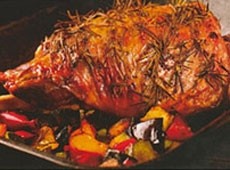Horsemeat scandal: Pubs face prosecution for not putting checks on meat served to customers

The warning comes in the wake of the scandal over horsemeat being passed off as beef in ‘ready meals’ and other processed foods.
Matthew Starling, of law firm Geldards, said: “Large meat processing firms and major retailers have agreed to test all their processed beef products by this Friday, (February 15) but all food businesses have an on-going responsibility to ensure what they sell is correctly labelled.
“They should have in place an incident management plan, robust traceability system and food safety plan, required under EU law, and be able to provide this information to the authorities on demand. It’s not enough for businesses to wait for advice or intervention from the food authorities.”
Starling explained that all food-related businesses need to be aware of a number of compliance risks currently high on the authorities’ inspection plan – not just the presence of horse DNA in beef products.
“Organisations of all sizes including food suppliers and retailers, restaurants, caterers and public institutions such as schools and hospitals are now being told to review their sourcing policies and verification processes, with the authorities paying close attention to traceability records relating to foods of animal origin.
“We expect to see particular scrutiny of labelling and traceability records for products and ingredients containing de-sinewed meat (DSM) which has been widely used in processed meat products and mechanically separated meat (MSM) following last year’s move by the Food Standards Agency to restrict the use of DSM and require its labelling, where permitted, as MSM.
“The authorities are also targeting food hygiene under the FSA’s ‘Foodborne Disease Strategy’ to tackle problems such as listeria and norovirus, and are closely scrutinising all organisations’ compliance with EU hygiene requirements when carrying out inspections, particularly the safe handling of food served to the public.
“In the light of current investigations, any business that suspects it may have received or supplied wrongly labelled beef, or any other product, needs to take immediate action and seek urgent advice.
“The potential contamination of horsemeat with the veterinary drug phenylbutazone makes this no longer just a food quality issue, but potentially a food safety one. Any delay could result in criminal liability.”




